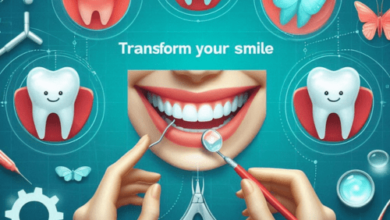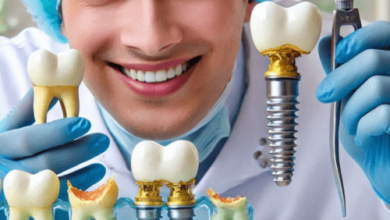Mini Dental Implants – A Revolutionary Solution for Tooth Replacement

Mini dental implants (MDIs) are a revolutionary advancement in dental technology, offering a minimally invasive and cost-effective solution for individuals seeking to replace missing teeth or stabilize loose dentures.
In this article, we will explore how the dentist in Plainville, Massachusetts offers permanent teeth replacement through innovative mini dental implant technology.
What are mini dental implants?
Mini dental implants (MDIs) are a type of dental implant that is smaller in diameter than traditional dental implants. They are used to support fixed or removable dental prosthetics, such as crowns, bridges, or dentures. MDIs are typically 1.8 to 3.3 mm in diameter, whereas traditional implants are usually 3.75 to 5.5 mm in diameter.
What are the advantages of mini dental implants?
Advantages of mini dental implants:
- Less invasive procedure: Smaller size requires less tissue disruption.
- Faster recovery time: Typically 1-3 days, compared to traditional implants.
- Lower cost: Generally 50-70% less expensive than traditional implants.
- Can be used in areas with limited bone density: Ideal for patients with insufficient bone.
- Can be used to stabilize loose dentures: Provides added security and comfort.
- Reduced risk of nerve damage: Smaller size minimizes the risk of nerve irritation.
- Easier placement: Simplified procedure requires less surgical expertise.
- Immediate loading: Teeth can be attached immediately after placement.
- Preserves surrounding bone and tissue: Minimizes bone loss and tissue damage.
- Aesthetically pleasing: Provides natural-looking results, improving smile and confidence.
- Can be used in conjunction with other treatments: Combines with other procedures for comprehensive care.
- Long-lasting: With proper care, MDIs can last for many years.
How are mini dental implants fabricated?
The procedure for mini dental implants typically involves the following steps:
Consultation and planning:
– Initial consultation with a dentist or oral surgeon
– Review of medical and dental history
– X-rays and impressions taken
– Treatment plan created
Preparation:
– Numbing the area with local anesthesia
– Cleaning and disinfecting the site
Implant placement:
– Making a small pilot hole in the jawbone
– Inserting the mini dental implant
– Securing the implant with a special tool
Healing period:
– Allowing the implant to integrate with the surrounding bone (1-3 months)
Attachment of prosthetic tooth or teeth:
– Connecting the prosthetic tooth or teeth to the implant
– Adjusting for proper fit and bite
Follow-up:
– Monitoring healing and implant integration
– Making any necessary adjustments
Who are ideal candidates for mini dental implants?
Ideal candidates for mini dental implants:
- Those with missing teeth or gaps
- Individuals with loose or unstable dentures
- Patients with limited bone density or insufficient bone for traditional implants
- Those seeking a less invasive and more cost-effective alternative to traditional implants
- Patients with small teeth or gaps
- Individuals who want to avoid extensive surgery or bone grafting
- Those who need a temporary or permanent solution for tooth loss
- Patients with dental anxiety or fear of extensive procedures
- Individuals who want a quick and minimally invasive solution
- Those who are looking for a more natural-looking and feeling solution
Additionally, mini dental implants can be a good option for:
- Older adults who may not be candidates for traditional implants due to bone loss or health concerns
- Smokers or individuals with certain medical conditions that may impact bone density
- Patients who have had previous dental work, such as bridges or crowns, and are looking for a more permanent solution
It’s essential to consult with a qualified dentist or oral surgeon to determine if mini dental implants are right for you. They will assess your individual needs and recommend the best course of treatment.
Bottom line
Mini dental implants are a viable option for those seeking a less invasive and more affordable dental implant solution. While they offer many benefits, it’s essential to consult with a qualified dentist to determine if MDIs are right for you. With proper care and maintenance, MDIs can provide a long-lasting and natural-looking smile.




